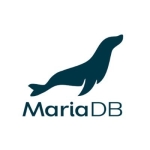Valuable Features:
• SQL Server provide end users and database programmers with a broad spectrum of services such as Analysis and Reporting services, Data Engine, Integration Services thus making database development and management easier and reliable.
• SQL Server offers a platform on which data in all levels- structured, semi-structured, and unstructured data can be managed, integrated and analyzed thus enabling an organization to realize its mission-critical information.
• Latest versions of SQL Server provide a handy development studio that not only make the creation of database objects easy but also offer useful tools such Object Explorer to allow quick processes.
Room for Improvement:
• SQL Server work best with Windows Operating System and it is not compatible with some other systems hence limiting its platform friendliness.
• Advance versions with higher functionality such as Work Group Edition have high installation requirement such as multi-processor computers, larger primary memory and are not open source.
Other Advice:
• Database developers who want to have a clear logical and physical understanding of database systems will no doubt benefit much from using SQL Server. I personally marvel at the extensible support provided by the management studio especially on disk and file management as I enjoy using SQL Server 2008. SQL Server is friendly to both beginners and experts and its installation process can be customized to suite different features.
Disclosure: I am a real user, and this review is based on my own experience and opinions.














Good Article. Though i would like to add some points.
1) Microsoft SQL Server is easy to use and offers more features, like full support for triggers.
2) Closely integrated with Microsoft products like .NET Framework.
3) Various features for data restoration and recovery.
4) Microsoft SQL Server only runs on Windows-based servers.
5) Costly license fees.